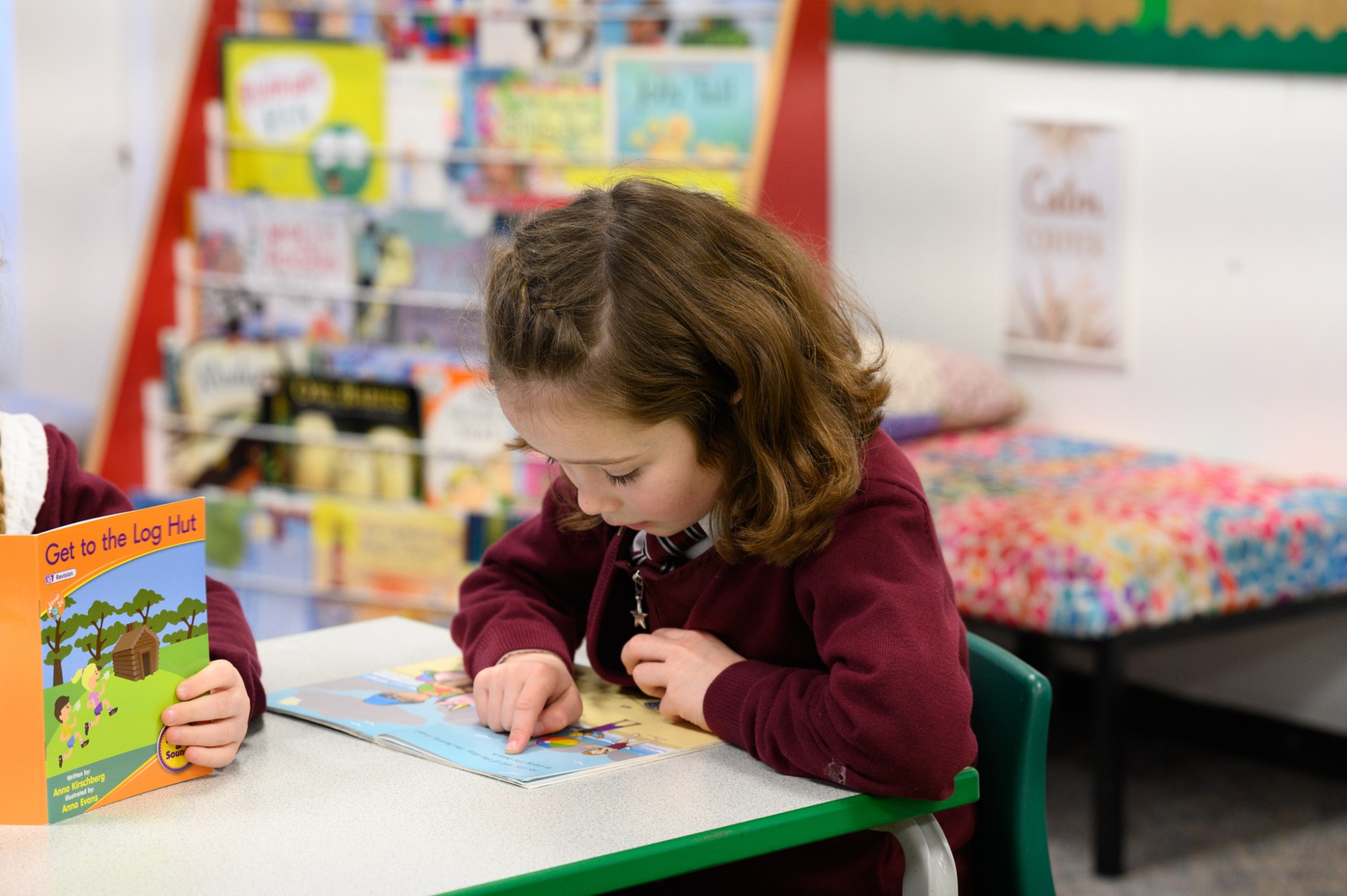Phonics
We expect every child to develop a strong foundation in phonics, enabling them to decode words confidently, read fluently, and build a lifelong love of reading.
Phonics plays a vital role in early literacy development and is a foundational approach used across our school to support reading and writing. By teaching children the relationship between sounds (phonemes) and letters (graphemes), phonics helps learners decode unfamiliar words, build vocabulary, and develop fluency. Across our school, phonics instruction is introduced in the early years and continues through our primary education.
We teach phonics using Twinkl Phonics. This whole-school programme provides a structured approach to learning; it is perfect for helping children progress from simple sounds to developing more complex and vital knowledge and skills required for reading. Developed by experts, Twinkl Phonics helps children prepare for the statutory Year 1 Phonics Scre ening Check. Daily phonics sessions are a staple in our early years and Key Stage 1 classrooms, using interactive and multisensory methods like songs, games, and visual aids to engage children and reinforce learning.
ening Check. Daily phonics sessions are a staple in our early years and Key Stage 1 classrooms, using interactive and multisensory methods like songs, games, and visual aids to engage children and reinforce learning.
Alongside classroom teaching, children access Twinkl’s online reading platform, where they can enjoy a wide range of decodable eBooks matched precisely to their phonics stage. This home–school link reinforces learning and supports parents in helping their children practise reading in a fun, engaging way.
Consistency is key in the effective delivery of phonics across different year groups in our schools. Our schools provide professional development to ensure that all staff are confident in teaching phonics. In addition, regular assessments help track progress and identify pupils who may need extra support or intervention.
 Phonics is not just confined to English lessons; it is integrated across the curriculum to promote reading confidence in all subject areas. By embedding phonics into a wider literacy strategy, we ensure our pupils, regardless of background or ability, leave our schools with the tools they need to become successful, independent readers for the rest of their lives.
Phonics is not just confined to English lessons; it is integrated across the curriculum to promote reading confidence in all subject areas. By embedding phonics into a wider literacy strategy, we ensure our pupils, regardless of background or ability, leave our schools with the tools they need to become successful, independent readers for the rest of their lives.
If you would like to know more about phonics at BWI, please see the information leaflet below or get in touch with your child's teacher.
